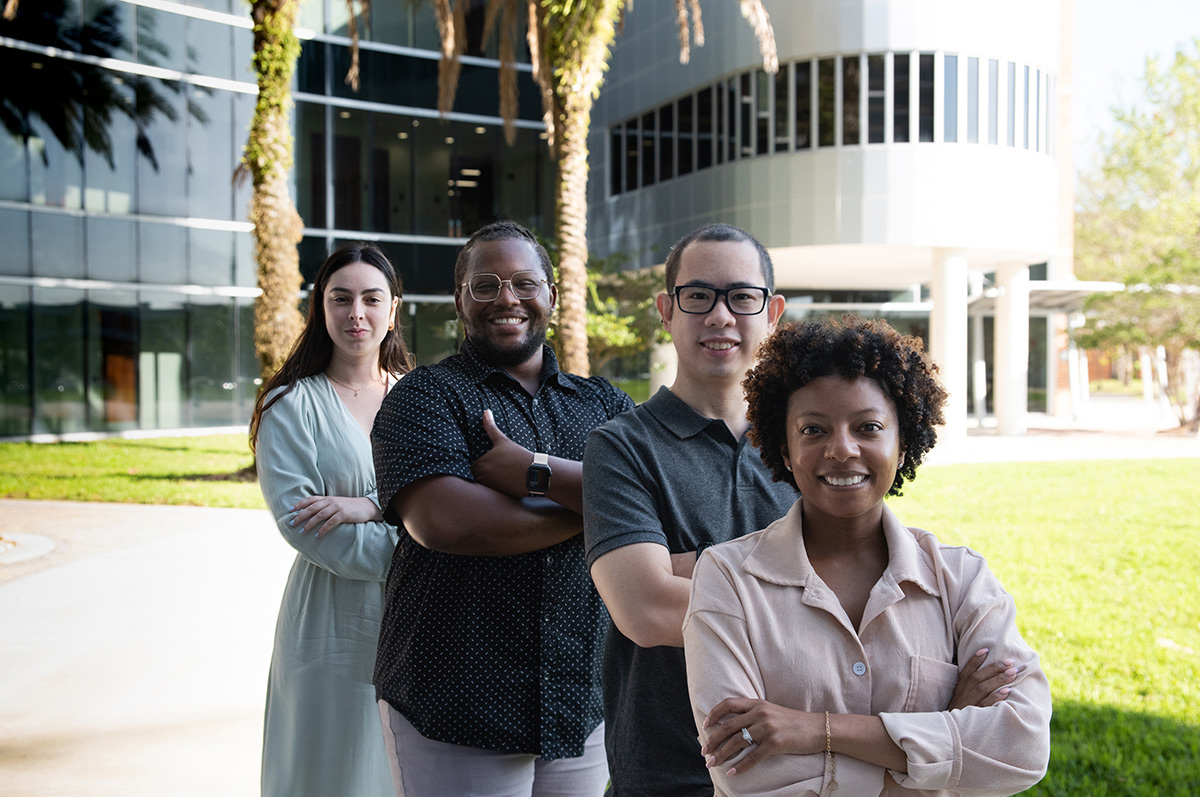Four students earned third place in the organization’s Graduate Student Ethics Awards for Doctoral Degree Students.

Four UCF counselor education doctoral students are celebrating a third-place win in the American Counseling Association’s Graduate Student Ethics Awards for Doctoral Degree Students.
The team – comprised of Sheldon Aaron, Sabrina Butler, James Rujimora and Galaxina Wright – competed with various doctoral programs nationwide, each of which responds to an ethical dilemma prompt posed by the American Counseling Association.
These awards recognize exceptional, demonstrable understanding of the American Counseling Association Code of Ethics, the foundation of ethical professional counseling practice. Each team submits an essay addressing the presented topic and how it should be handled.
Aaron, Butler, Rujimora and Wright were presented a case with multiple ethical dilemmas, including issues with supervision and a personal faculty supervisor/client relationship, using an ethical decision-making model and current research.
Bryce Hagedorn, professor and academic program coordinator of counselor education, says students look at the ethical issue through the lens of an ethical decision-making model and evaluate it in a step-by-step process to reach a conclusion on how to address it.
“The students also have to look in the literature and find professional research that aligns with the situation,” Hagedorn says. “That’s not always easy to do, and sometimes you have to extrapolate from the research you do find to apply to the situation you're currently facing. Finally, they have to write the essay, and I think that's one of the biggest challenges – combining their different writing styles into one coherent voice.”
This is the third time a UCF team has placed in the competition, having won awards at the master’s level competition in 2014 and the doctoral level in 2018.
Hagedorn added that most national awards are reserved for professionals and educators, so these graduate students having the opportunity to compete for and win one demonstrates their dedication to professionalism.
“The fact that they can't have faculty input demonstrates their ability to work together to formulate a cogent and coherent product,” Hagedorn says. “It also speaks to their ability to deliberate and debate potential approaches amongst themselves, come up with a product that speaks to a majority perspective, and then do that in a way that gets a committee's attention from all those submissions.”
The team members received their award April 8 during the American Counseling Association Conference in Atlanta.
“It bodes well for them to have national awards when they move forward into looking for faculty positions, because that sets them above and beyond other applicants,” Hagedorn says. “It really foreshadows their success as graduate students and future success as faculty.”